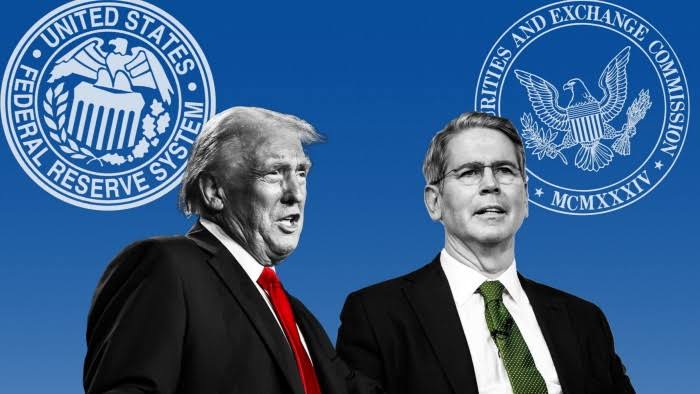 Image Source: Financial Times
Image Source: Financial Times
The U.S. Treasury, led by Secretary Scott Bessent, has issued a stunning increase in tariff receipts, revealing the government has already taken in $100 billion in tariff revenues through the first half of the year—a total expected to hit $300 billion by December, provided current trade policies continue.
The action comes amid a whirlwind of trade negotiations, looming deadlines, and new tariff threats against dozens of countries. The aggressive policy of the administration is reorienting global trade patterns, sending shivers through financial markets and provoking strong responses from trade nations.
Key Highlights
Tariff Revenue Record: The United States has to date this year 2025 earned $100 billion in tariffs, with estimates to reach $300 billion by year end if new policies are enforced rigorously.
New Tariff Deadlines: 25% to 40% higher tariffs are to become effective on August 1 for nations that do not have the new trade agreements. The 90-day grace period for the maximum tariffs expires on July 9, pushing trade partners to negotiate even more urgently.
Global Reach: At least 14 countries, including major economies like Japan and South Korea, have been cautioned by letters of possible tariff hikes unless agreements are achieved. Smaller nations like Serbia, Tunisia, and Thailand have not been forgotten.
Market Volatility: S&P 500 saw its biggest drop in three weeks following the announcement, as investors became increasingly concerned with increasing trade tensions.
Administration's Justification: Secretary Bessent stressed that the tariffs are designed to stimulate U.S. manufacturing, close the trade deficit, and get companies to bring production back to American soil. The administration argues that these policies could ultimately make middle-class tax cuts possible.
Negotiation Blitz: The White House is racing to finish several trade deals ahead of the new tariffs, with Bessent saying his mailbox is "overflowing" with proposals from other governments.
Source: The Economic Times, Reuters, CNBC, Moneycontrol, Al Jazeera
Advertisement
Advertisement




